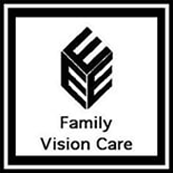Vision Care for Seniors
Vision Care for Seniors

As people age, their bodies begin to change. It doesn’t happen overnight, nor at the same time for everyone, but regardless of genetics or physical fitness, everyone’s body feels the effects of the passage of time.
The eyes are no exception. In fact, they’re one of the first parts of the body that people notice signs of aging.
In this post, we will go over some of the most common eye diseases and issues that most commonly manifest in senior citizens.
Weighing your Options: Contacts or Glasses
Cataracts
Cataracts are one of the most common and noticeable eye afflictions in senior citizens. Characterized by clouded or dimmed vision, over 50% of Americans will develop cataracts by the time they turn 80.
Symptoms include:
-
Clouded or dim vision
-
Double vision in one eye
-
Difficulty seeing at night
-
Halos around the eye
-
Sensitivity to light and glare
-
Yellows becoming faded
-
Trouble distinguishing between blue and green
-
Trouble seeing objects against backgrounds of the same color
So long as cataracts are noticed and treated, there are no long-lasting issues. Corrected or tinted lenses help distinguish objects while driving ad give relief to those who suffer from cataracts.
In severe cases, surgery is required to replace the clouded lenses with clear artificial lenses.
Dry Eye
Dry eyes occur when the tear ducts cannot produce enough high-quality tears. Either the tear ducts have begun to degenerate, or they produce tears that are too watery and not able to properly hydrate the eyes.
Hormonal changes are the usual culprit of dry eyes, and it is especially common in women who have reached menopause. Additionally, those who live in an especially dry climate are more prone to suffering.
Symptoms include:
-
Burning of the eye
-
Persistent scratchy or gritty feeling
-
Overactive tear ducts that produce watery tears
-
Blurred vision
Those afflicted by dry eye often must learn to live with the symptoms, however, artificial tears provide temporary relief to those whose suffering is unmanageable.
Presbyopia
Presbyopia is characterized by eyes that have trouble focusing on objects up close. This occurs when the lenses of the eye harden with old age and are not as supple as in youth.
Symptoms include:
-
Trouble reading small print
-
Headaches
-
Eyestrain
The simplest solution is often a pair of reading glasses, but new prescription glasses or contacts are sometimes advisable.
Glaucoma
Glaucoma is not one singular disease, but rather a group of eye diseases caused by damage to the optic nerve. The result is a steady loss of peripheral vision. Glaucoma usually develops in one eye before the other and requires a trip to the optometrist.
It is completely painless, and the only symptom is loss of peripheral vision. If left untreated it can lead to complete and permanent blindness.
Genetic risk factors increase the likelihood of developing glaucoma, and it tends to appear more often in those of African descent and older adults.
Age-related Macular Degeneration (AMD)
The macula, the part of the retina that processes small details and distinguishes colors, can weaken or become partially disconnected as humans age.
Symptoms include:
-
Partial vision loss
-
Straight lines appearing wavy
-
Distorted vision
-
Inability to see in dim light
-
Persistent spots in the field of vision
AMD does not affect peripheral or side vision. Dietary vitamin and mineral supplements can reduce the progression of the disease. In extreme cases, laser surgery can also be an option.
Looking Forward to Old Age
Many different eye diseases can develop as people age, but these are some of the most common that senior citizens should be mindful of.
If you have begun developing any of the symptoms listed above, or if you, or someone you care for, have recently aged into senior citizen territory, it is a good idea to get your eyes examined at least once per year.
Don’t have a regular optometrist? Why not go to the best around? Family Vision Care in Oxford boasts the best family vision practice in the area. Stop by and see Dr. Jeffry Collins, a second-generation optometrist with decades of experience, and see clearly today.
